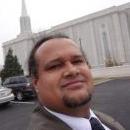-
Posts
25762 -
Joined
-
Last visited
-
Days Won
563
Reputation Activity
-
 Vort got a reaction from Sunday21 in Temple Workers
Vort got a reaction from Sunday21 in Temple Workers
I don't know this, but I would guess that Irish women were more particularly targeted, specifically those on the west coast of Ireland. Proximity and all that, you know.
-
 Vort got a reaction from Edspringer in What is the scope of God's creation?
Vort got a reaction from Edspringer in What is the scope of God's creation?
Elder Scott seemed to be under the firm impression that ALL in the universe was created by our Father and his Christ.
-
 Vort got a reaction from Blackmarch in Does the language of the scriptures bother you?
Vort got a reaction from Blackmarch in Does the language of the scriptures bother you?
I was surprised and pleased to find that I actually quite enjoyed the book of Numbers when I read it carefully last year. It is a bit accountant-like, but it all points toward how to build the temple. If you're imagining the temple as you read and you put the words into your mental image, it's actually very interesting.
-
 Vort got a reaction from Blackmarch in Does the language of the scriptures bother you?
Vort got a reaction from Blackmarch in Does the language of the scriptures bother you?
Not so. So-called "formal" speech is not used in scripture at all, as far as I can tell. Or perhaps more precisely, formality is never conveyed by pronoun choice. The pronouns are always strictly literal in their meanings. (Traditional Christians and Jews would probably disagree with this in the plural pronouns referring to deity in Genesis, but to Latter-day Saints, their meaning is perfectly clear.)
"Thou" and "ye" are the subject forms; "thee" and "you" are the object forms. So we say:
Thou art speaking / Ye are speaking.
but:
I am speaking to thee/you.
The singular pronouns "thou/thee/thy/thine" along with the subject form "ye" were all lost from English in the last couple of hundred years, all replaced by "you" (and "your/yours" for "thy/thine"). Truly a pity.
-
 Vort got a reaction from Blackmarch in Does the language of the scriptures bother you?
Vort got a reaction from Blackmarch in Does the language of the scriptures bother you?
The opposite. Scriptural language generally seems much clearer and more direct, lacking the wiggle room and ambiguity that infest are characteristic of modern speech.
Simple example: "Thou" versus "ye" ("you"). What a great word "thou" is! We English speakers were idiots to give it up. It tells us unambiguously whether the pronoun refers to two or more people (e.g. Jesus to Peter, speaking of all the disciples: "Satan desireth to have you, that he may sift you as wheat") or whether it's referring to one person only (e.g. Jesus to Peter, speaking of Peter alone: "But I have prayed for thee, that thy strength fail not; and when thou art converted, strengthen thy brethren").
-
 Vort got a reaction from Backroads in Temple Workers
Vort got a reaction from Backroads in Temple Workers
How is it possible that women and men can be simultaneously godly and wicked?
All of us are wicked. All of us. We all offend God by our weakness and ungodliness.
All of us are Godly. All of us (with perhaps very rare exceptions of those who have actively sought to extinguish all traces of God from their souls). We all have some aspect of divinity within us.
What is our duty to ourselves? To seek to repress the wicked within us and to nurture the Godly.
What is our duty to others? To forgive the wickedness we see in them, and to encourage and celebrate the Godly, that they might develop it even further.
-
 Vort got a reaction from Backroads in Does the language of the scriptures bother you?
Vort got a reaction from Backroads in Does the language of the scriptures bother you?
The opposite. Scriptural language generally seems much clearer and more direct, lacking the wiggle room and ambiguity that infest are characteristic of modern speech.
Simple example: "Thou" versus "ye" ("you"). What a great word "thou" is! We English speakers were idiots to give it up. It tells us unambiguously whether the pronoun refers to two or more people (e.g. Jesus to Peter, speaking of all the disciples: "Satan desireth to have you, that he may sift you as wheat") or whether it's referring to one person only (e.g. Jesus to Peter, speaking of Peter alone: "But I have prayed for thee, that thy strength fail not; and when thou art converted, strengthen thy brethren").
-
 Vort got a reaction from mordorbund in Can there be free will while God knows all things?
Vort got a reaction from mordorbund in Can there be free will while God knows all things?
Why?
If this is so, then I'm sure you will have no problem giving us examples of two or three of those flaws.
-
 Vort got a reaction from zil in Does the language of the scriptures bother you?
Vort got a reaction from zil in Does the language of the scriptures bother you?
The opposite. Scriptural language generally seems much clearer and more direct, lacking the wiggle room and ambiguity that infest are characteristic of modern speech.
Simple example: "Thou" versus "ye" ("you"). What a great word "thou" is! We English speakers were idiots to give it up. It tells us unambiguously whether the pronoun refers to two or more people (e.g. Jesus to Peter, speaking of all the disciples: "Satan desireth to have you, that he may sift you as wheat") or whether it's referring to one person only (e.g. Jesus to Peter, speaking of Peter alone: "But I have prayed for thee, that thy strength fail not; and when thou art converted, strengthen thy brethren").
-
 Vort got a reaction from Sunday21 in Temple Workers
Vort got a reaction from Sunday21 in Temple Workers
Let's just say that many of our Irish grandmothers didn't emigrate to Iceland by choice.
-

-
 Vort got a reaction from NeedleinA in Temple Workers
Vort got a reaction from NeedleinA in Temple Workers
How is it possible that women and men can be simultaneously godly and wicked?
All of us are wicked. All of us. We all offend God by our weakness and ungodliness.
All of us are Godly. All of us (with perhaps very rare exceptions of those who have actively sought to extinguish all traces of God from their souls). We all have some aspect of divinity within us.
What is our duty to ourselves? To seek to repress the wicked within us and to nurture the Godly.
What is our duty to others? To forgive the wickedness we see in them, and to encourage and celebrate the Godly, that they might develop it even further.
-
 Vort reacted to Sunday21 in Temple Workers
Vort reacted to Sunday21 in Temple Workers
Umm because of Viking settlements in Ireland and Viking ....ventures in Ireland? This is as polite as I know how to be!
-

-
 Vort got a reaction from a mustard seed in What’s the last movie you watched?
Vort got a reaction from a mustard seed in What’s the last movie you watched?
**SPOILER** for Arrival.
The circles were the written communications used by the aliens, but probably not invented by them. Circles have no beginning or end, and thus are a symbol of eternity (see Joseph Smith -- Ring Example). The effect of learning to comprehend the circle-writing was that you began to have a non-linear temporal experience of reality, including future as well as past and present experiences.
-

-
 Vort got a reaction from askandanswer in Temple Workers
Vort got a reaction from askandanswer in Temple Workers
How is it possible that women and men can be simultaneously godly and wicked?
All of us are wicked. All of us. We all offend God by our weakness and ungodliness.
All of us are Godly. All of us (with perhaps very rare exceptions of those who have actively sought to extinguish all traces of God from their souls). We all have some aspect of divinity within us.
What is our duty to ourselves? To seek to repress the wicked within us and to nurture the Godly.
What is our duty to others? To forgive the wickedness we see in them, and to encourage and celebrate the Godly, that they might develop it even further.
-
 Vort got a reaction from Rhoades in LDS Perspectives: Depression and Mental Health Myths
Vort got a reaction from Rhoades in LDS Perspectives: Depression and Mental Health Myths
Why do you think it has to be either/or, Jojo? Spiritual sickness can manifest itself in our physical bodies, so why not our minds? On the other hand, we can have physical illness that has no spiritual component to it, so why should the same not hold true with some mental and psychological infirmities? Our flesh-and-blood brains are the framework through which we perceive and think about our lives, and I am sure that flesh and blood is just as prone to weakness and disease as our arms, legs, stomachs, or any other part of our bodies.
-
 Vort got a reaction from Blackmarch in Agency
Vort got a reaction from Blackmarch in Agency
I taught a Sunday School class yesterday in which we discussed what it meant to be an "agent". I wrote "________ agent" on the whiteboard and asked for words to fill in the blank. We got "secret", "free", "re-", and a few others. I added "moral".
Then I asked them what a "secret agent" did. We talked about what it meant that a professional athlete was a "free agent". After some short discussions, the students decided that an "agent" was someone who acted in behalf of another.
So then I asked the obvious question: When we exercise "our free agency" (or "our moral agency"), for whom are we acting in behalf? What are our choices? In what ways can we be an "agent" for e.g. Jesus Christ (or for that matter, Satan)? How does this idea of moral agency relate to our baptismal covenants?
In response to one young sister's answer that we can be "agents" for our own selves, we also discussed D&C 88:34-35:
Not entirely sure about my students, but I personally enjoyed the lesson quite a bit. Sixteen-year-olds have some spiritual insights, and they can show them when given a chance.
Any additional thoughts on this topic? I have the sense that it's a mother lode of truth that we have barely begun to mine.
-

-
 Vort got a reaction from Fether in Temple Workers
Vort got a reaction from Fether in Temple Workers
Wow. That has to be some sort of record for fastest account signup/deletion.
-

-
 Vort got a reaction from Just_A_Guy in Temple Workers
Vort got a reaction from Just_A_Guy in Temple Workers
How is it possible that women and men can be simultaneously godly and wicked?
All of us are wicked. All of us. We all offend God by our weakness and ungodliness.
All of us are Godly. All of us (with perhaps very rare exceptions of those who have actively sought to extinguish all traces of God from their souls). We all have some aspect of divinity within us.
What is our duty to ourselves? To seek to repress the wicked within us and to nurture the Godly.
What is our duty to others? To forgive the wickedness we see in them, and to encourage and celebrate the Godly, that they might develop it even further.
-
 Vort got a reaction from MrShorty in Looking to learn about Mormons, have 3 questions
Vort got a reaction from MrShorty in Looking to learn about Mormons, have 3 questions
Short version: No. Yes. Yes.
Slightly less short version: God is not a God of compulsion. Reality, however, is pretty compelling.
Slightly less less short version: To answer these questions adequately, we would need to have a better revealed understanding of the conditions in premortal life. Since we do not have that public revelatory knowledge, it makes it hard to give answers that are anything more than opinion coupled with educated guessing.
Long version: [redacted]
-
 Vort got a reaction from beefche in Temple Workers
Vort got a reaction from beefche in Temple Workers
How is it possible that women and men can be simultaneously godly and wicked?
All of us are wicked. All of us. We all offend God by our weakness and ungodliness.
All of us are Godly. All of us (with perhaps very rare exceptions of those who have actively sought to extinguish all traces of God from their souls). We all have some aspect of divinity within us.
What is our duty to ourselves? To seek to repress the wicked within us and to nurture the Godly.
What is our duty to others? To forgive the wickedness we see in them, and to encourage and celebrate the Godly, that they might develop it even further.














